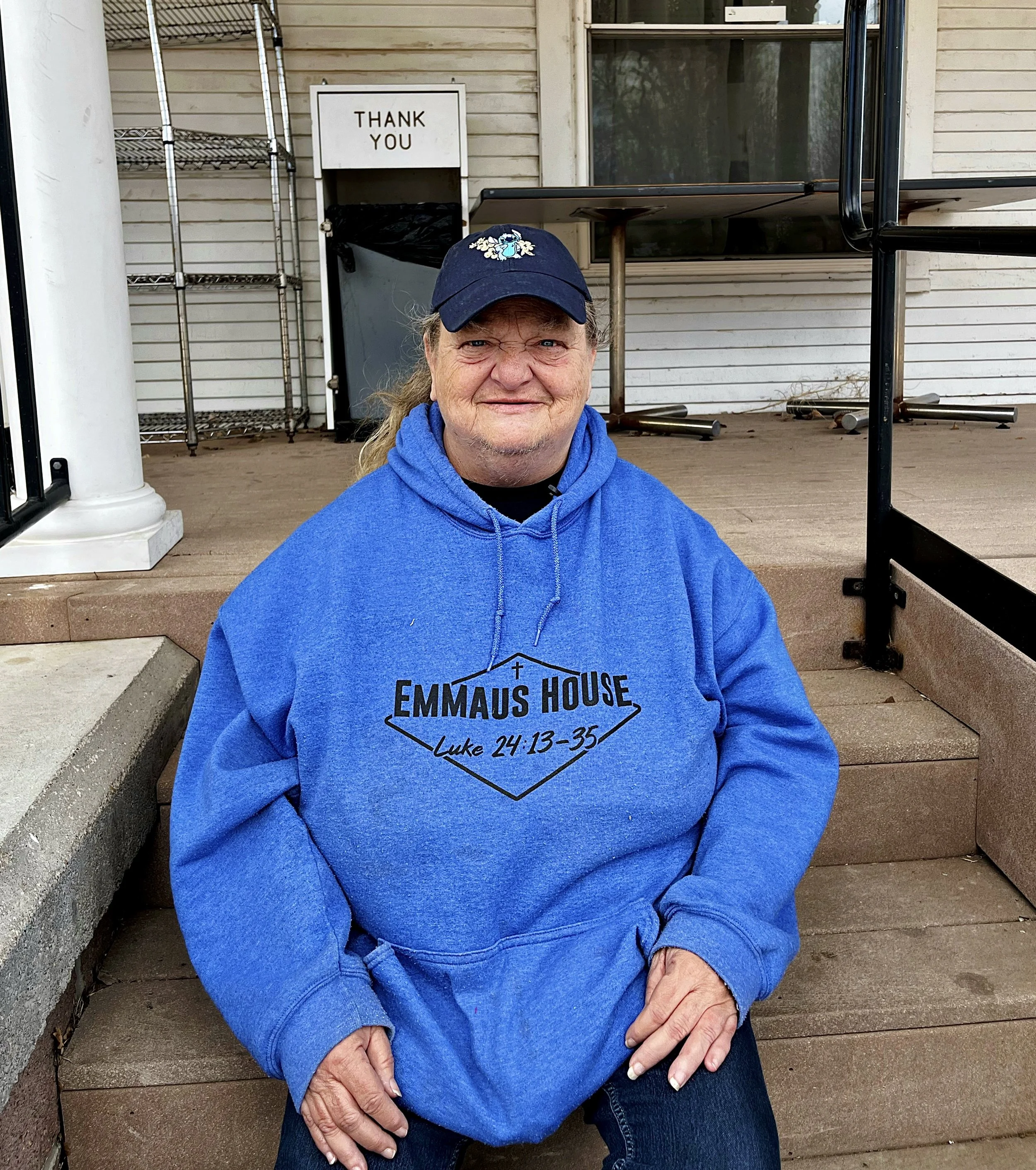“A Foundation to Stand On”
A Photo Essay from Garden City, Kansas
Written by Jessica Ramirez, MA, MPH. All rights reserved.
She sits on the worn stone steps of the Emmaus House porch like it’s her own front stoop—shoulders relaxed beneath a royal blue sweatshirt that reads, EMMAUS HOUSE – Luke 24:13-35. The hoodie hangs a bit loose, swallowed in places by the wind, but her presence is grounded. Firm. She wears a navy cap with a floral patch above the brim, her blonde hair tucked into a low ponytail. Her hands, folded gently in her lap, show the work of time and resilience.
This is Lisa.
Her smile is soft, but it carries weight. It carries the weight of nights spent hungry, rejected, and houseless. The weight of walking through doors slammed in her face. Years ago, Lisa was at rock bottom—battling addiction, with nowhere left to go. Every shelter in town turned her away. Every one except Emmaus House.
“They saw me as a person,” she said during an interview in early March 2025, “not just as a problem.”
That recognition, that radical act of acceptance, was everything.
Emmaus House, nestled within the heart of Garden City, Kansas, is far more than a shelter. It’s a sanctuary. A place where people are received not based on what they’ve lost, but what they still hold within them—their humanity, their hope. Founded on the biblical story of two travelers on the road to Emmaus, the house reflects the same values of companionship, revelation, and community. In Garden City, where a growing number of residents face housing instability and food insecurity, Emmaus House has become a lifeline. A place to get a warm meal, find clean clothing, take a shower, and—perhaps most importantly—feel seen.
For Lisa, it became the stepping stone she desperately needed. Emmaus House didn’t just give her shelter. It gave her a chance to pause, breathe, and start again.
Now sober and living in stable housing, Lisa could have walked away. She could have turned the page on that chapter of her life. But she didn’t. Most mornings, she walks through the very doors that once offered her refuge—not as a guest, but as a volunteer. She scrubs pots, organizes food pantry donations, wipes down tables, and talks with folks waiting in line for a hot plate. Not because it’s her job. She doesn’t get paid. She says she’s simply giving back to the place that gave her everything.
“There’s always someone here who reminds me of me,” she shared. “I don’t ever want them to feel like they’re alone.”
Lisa’s story is one of reciprocity—of coming full circle. It’s a quiet but powerful example of what happens when a community chooses compassion over judgment. When we invest in healing, not just surviving.
Behind her in the photo stands a small black-and-white sign: THANK YOU. It’s just a bin for donations, but in the context of Lisa’s journey, it becomes something else—a silent echo of gratitude. From her, from all of us, to the people and places that make second chances possible.
This photo essay was written by Jessica Ramirez, MA, MPH. All rights reserved.
